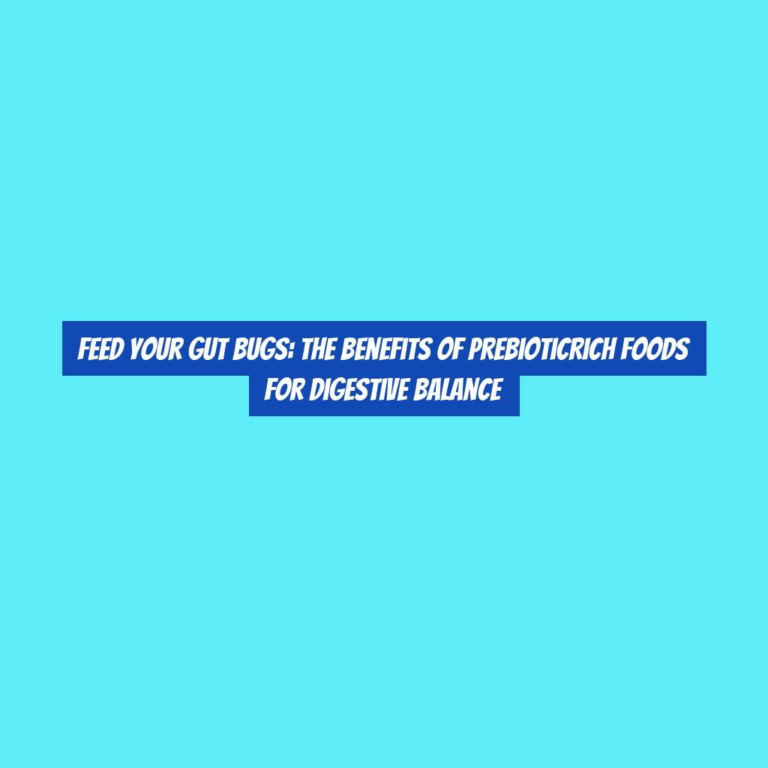Nourishing Your Microbiome: Embracing Fermented Foods for Gut Wellness
You may not realize it, but your gut is a complex ecosystem teeming with trillions of microorganisms. The delicate balance of this microbiome plays a crucial role in your overall health, influencing everything from digestion to immune function.
But fear not, because thereG??s a simple and delicious way to support your gut wellness: fermented foods. These age-old culinary creations offer a wealth of benefits for your gut, and theyG??re easier to incorporate into your diet than you might think.
So, if youG??re ready to discover the world of fermented foods and how they can nourish your microbiome, keep reading to unlock the secrets of this ancient practice.
Understanding the Gut Microbiome
To understand the gut microbiome, you need to recognize that it plays a crucial role in your overall health and well-being. Your gut is home to trillions of microorganisms, including bacteria, viruses, fungi, and other microbes. This complex community, known as the microbiome, is involved in various physiological processes such as digestion, immune function, and even mood regulation. The balance of these microorganisms is essential for maintaining good health.
The gut microbiome contributes to the breakdown and absorption of nutrients from the foods you eat. It also plays a significant role in supporting your immune system, helping to protect you from harmful pathogens. Moreover, recent research has highlighted the gut-brain connection, indicating that the microbiome may influence your mood and cognitive function.
Imbalances in the gut microbiome, known as dysbiosis, have been linked to various health issues, including digestive disorders, autoimmune conditions, and metabolic diseases. Therefore, supporting a healthy and diverse gut microbiome is fundamental for your overall well-being.
This is where fermented foods come into play, as they can help promote a healthy balance of gut microorganisms.
Exploring the Benefits of Fermented Foods
Exploring the benefits of fermented foods can provide valuable insights into how they support gut health and overall well-being. When you incorporate fermented foods into your diet, you can experience a range of benefits that positively impact your health:
Improved Digestion: Fermented foods are rich in probiotics, which promote the growth of beneficial bacteria in the gut. This can aid in digestion and enhance nutrient absorption.
Enhanced Immune Function: The probiotics in fermented foods can help support a healthy immune system by balancing the gut microbiota and reducing inflammation.
Increased Nutrient Availability: Fermentation can increase the availability of certain nutrients in foods, such as B vitamins and antioxidants, making them more easily absorbed by the body.
Support for Mental Health: Research suggests that the gut-brain connection is influenced by the microbiome, and consuming fermented foods may positively impact mental well-being.
Incorporating Fermented Foods Into Your Diet
Incorporate fermented foods into your diet to introduce beneficial probiotics and support your gut health. Start by incorporating small amounts of fermented foods like yogurt, kefir, sauerkraut, kimchi, and miso into your meals.
For breakfast, try adding a dollop of yogurt or kefir to your smoothie or enjoying it with some granola.
For lunch, consider adding a side of tangy sauerkraut or kimchi to your sandwich or salad.
At dinner, incorporate miso into a flavorful soup or use it as a marinade for meat or tofu. Experiment with different fermented foods to find what suits your taste buds.
Additionally, you can explore making your own fermented foods at home. Try making your own yogurt, kefir, or sauerkraut using starter cultures or fermentation kits. This can be a fun and rewarding way to incorporate fermented foods into your diet while also controlling the ingredients and flavors.
Remember to consume fermented foods in moderation and as part of a balanced diet to reap the benefits of these gut-friendly foods.
Maximizing Probiotic Potential in Fermented Foods
Maximizing the probiotic potential in fermented foods can be achieved through proper storage and consumption techniques. By following these simple steps, you can ensure that youG??re getting the most out of these beneficial foods:
Refrigerate properly: Fermented foods should be stored at the correct temperature to maintain the viability of probiotics. Always check the label for specific storage instructions.
Avoid heat: Heat can kill off the beneficial bacteria in fermented foods. Be mindful of cooking temperatures and try to consume these foods raw or at lower temperatures when possible.
Consume variety: Different fermented foods contain different strains of probiotics. Incorporating a variety of fermented foods into your diet can provide a broader spectrum of beneficial bacteria for your gut.
Read labels: Look for labels that indicate the presence of live and active cultures. This ensures that the fermented food contains probiotics that can contribute to your gut health.
Delicious Fermented Food Recipes
Looking to add some delicious and nutritious fermented foods to your diet? Try making your own tangy sauerkraut by combining shredded cabbage with salt and letting it ferment for a week.
You can also whip up some probiotic-rich yogurt by heating milk, adding a starter culture, and letting it ferment until thick and creamy.
For a refreshing drink, why not brew your own kombucha? Just ferment sweetened tea with a SCOBY (symbiotic culture of bacteria and yeast) for a week or more, and enjoy the fizzy, tangy result.
Another option is to pickle your favorite vegetables in a brine of water, salt, and spices for a zesty and crunchy snack.
And donG??t forget about kimchi, a spicy Korean staple made from fermented vegetables like cabbage and radishes.
Incorporating these simple and tasty recipes into your meal plans wonG??t only tantalize your taste buds but also provide a diverse array of beneficial bacteria to support your gut health.
Give these recipes a try and savor the flavors while nourishing your microbiome.
Conclusion
So, go ahead and start incorporating fermented foods into your diet for a happier, healthier gut. Your microbiome will thank you for it!
Plus, with delicious recipes to try, thereG??s no reason not to give it a go. Embrace the benefits of fermented foods and watch as your gut wellness improves.
Cheers to a thriving microbiome and a happier, healthier you!






